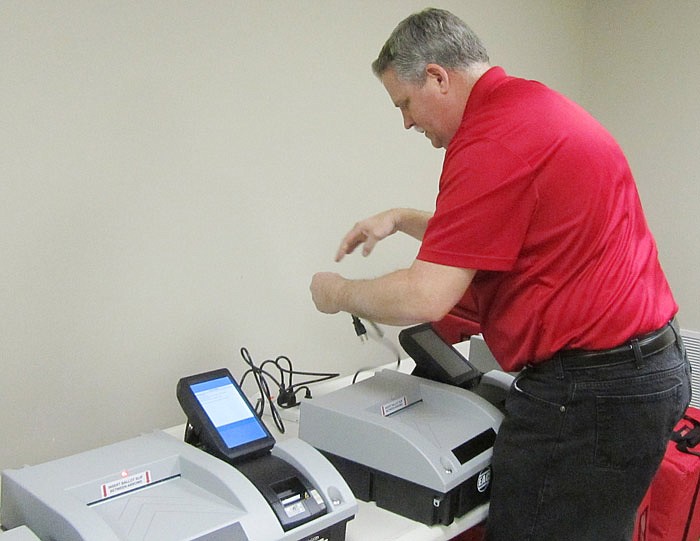Cole County government owes back pay to 10 elected officials whose salaries were lower than they should have been.
Two different lawyers delivered the same message to county officials within the last three months, and both based their legal opinions on a 2007 state law change and a 2011 ruling by the Springfield-based Southern District appeals court.
Lowell Pearson with the Husch Blackwell law firm told the elected officials Wednesday he estimated the county owes about $370,000 in back pay, plus the costs of benefits like retirement that were tied to the salaries.
State law since the 1980s has required all county governments to have a salary commission to deal with issues around elected officials' salaries - including the assessor, auditor, county clerk, collector, presiding and associate commissioners, public administrator, recorder of deeds and treasurer.
The circuit clerk, prosecuting attorney and sheriff are paid under different laws, so they're not affected by the two legal opinions requested by Collector Larry Vincent in his role as salary commission chairman.
"The Salary Commission's desire was to find out if it had followed state statutes since Cole County became a first class county in 1997. None of us was aware of the changes to state statutes that occurred in 2007," Vincent reminded officials Wednesday morning, then repeated in an email to the News Tribune.
State law sets four different classes of counties, based on total assessed property values.
The law also sets different salary levels for the elected officials in each class - except for first class counties with charter governments, like St. Louis and Jackson counties.
Both Pearson and Jefferson City attorney Michael Berry noted the Legislature in 2005 set a salary schedule for first-class counties but included an exception where the current pay was "lower than the compensation provided under the salary schedule" - and Cole County salaries were acceptable under that law.
But the problematic change came in 2007, both attorneys said, when lawmakers kept the salary schedule but removed the exception.
Taney County Collector Sheila Wyatt sued her county for paying her too little, and the county counter-sued that she had been paid too much.
An appeals court opinion in July 2011 focused on the 2007 law change and said the language used "demonstrates that the legislature intended for each county official to have his or her salary set at the statutory amount."
In Cole County, both Berry and Pearson advised the officials, that means the affected county officials should be making $57,000 a year - no matter whether they're jobs are considered full- or part-time.
"The statute doesn't draw any distinction," Pearson said Wednesday.
The two associate commissioners would earn $55,000 a year under a separate law that gives the presiding commissioner $2,000 more each year than the associates.
In 2011, none of the elected officials earned $57,000 a year, and only Public Administrator Marilyn Schmutzler's $56,005 came close.
With cost-of-living raises since, Schmutzler and Assessor Chris Estes will earn almost $59,439 this year - more than the statutory level.
Four other officials - Vincent, Auditor Kristen Berhorst, County Clerk Steve Korsmeyer and Recorder Ralph Bray - earn more than $56,000 but less than the statutory levels set in 2007.
Berry and Pearson said a five-year statute of limitations would mean the county wouldn't owe back pay for wrong salaries before 2011.
Pearson suggested the county commission consider the issue as part of the 2017 budget, since 2016 is more than half over and no money was put in the current budget to deal with the problem.
Both Pearson and Berry also said some office holders might have been paid too much and would owe money back to the county.
Berry cautioned: "It would be unfair to criticize the officials involved in making the 2007 Salary Commission decision or to criticize anyone giving them legal advice.
"The snarl of ever-changing statutes governing county official compensation is not easily understood at any point in time and is open to conflicting interpretations."

